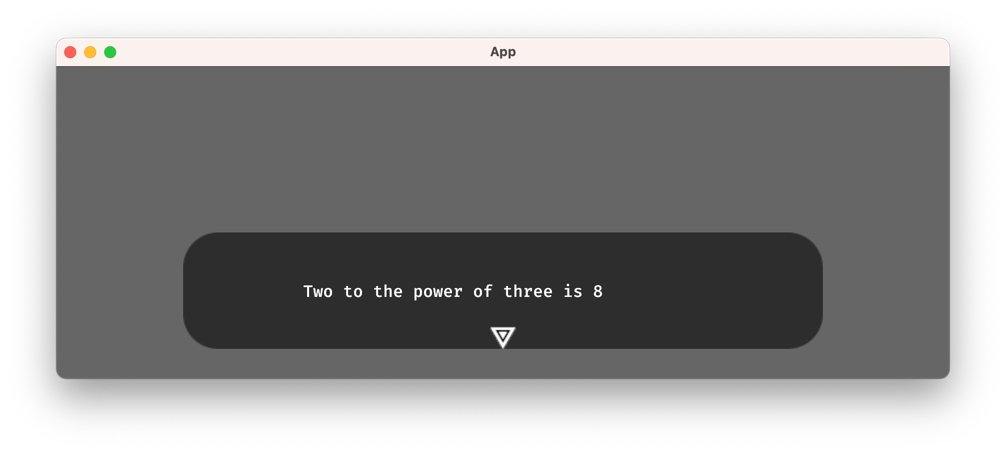Functions
As mentioned in the chapter Functions, Yarn can access user-defined functions. A collection of functions is called a library and can be accessed through a DialogueRunner.
Function Registration
For an easy example, let's modify the code used in the Quick Start to provide a simple pow function to Yarn:
fn spawn_dialogue_runner(mut commands: Commands, project: Res<YarnProject>) {
let mut dialogue_runner = project.create_dialogue_runner();
// Add our custom function to the dialogue runner
dialogue_runner.library_mut().add_function("pow", pow);
dialogue_runner.start_node("Start");
commands.spawn(dialogue_runner);
}
fn pow(base: f32, exponent: f32) -> f32 {
base.powf(exponent)
}The following snippet is of special importance:
dialogue_runner.library_mut().add_function("pow", pow);The first parameter of add_function() is the name of the function as seen by Yarn, "pow" in this case. The second parameter is the Rust function that will be called in the background. Here, we reference the function definition of fn pow(...), but you could also register a lambda.
This pow function can now be called from the Yarn file like this:
title: Start
---
Two to the power of three is {pow(2,3)}
===Which will result in the following output:

Allowed Signatures
Custom functions need to follow some rules. Don't worry, they're pretty lax.
Their parameter and output types need to be primitive types or
StringParameters are allowed to be references
Parameters can have the special type
YarnValue, which stands for any input type. Additionally, functions are assumed to have no side effects. You can read the full list of requirements in the docs forYarnFn.
Here are some examples of valid functions:
fn add(a: f32, b: f32) -> f32 {
a + b
}
fn concat(a: &str, b: &str) -> String {
format!("{a}{b}")
}
fn greet(name: &str, age: usize) -> String {
format!("Hello {name}, you are {age} years old!")
}
fn format_anything(value: YarnValue) -> String {
format!("Got the following value: {value}")
}If you need functions that have side effects, e.g. for manipulating the game world, use custom commands instead.
Size constraints
Registered Rust functions can have a maximum of 16 parameters. If you need more, you can wrap parameters in tuples:
fn add((a, b): (f32, f32)) -> f32 {
a + b
}Tuples are treated as separate parameters when calling the function from Yarn:
title: Start
---
Two plus three is {add(2, 3)}
===Since tuples can be nested, you can use have potentially infinite parameters.
Was this helpful?
